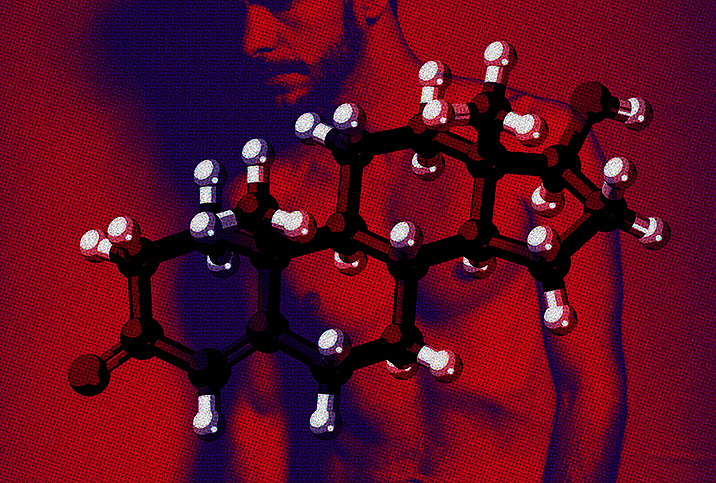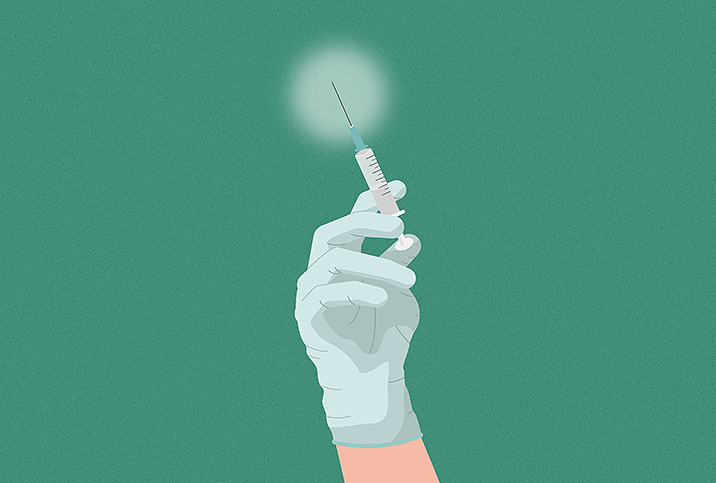Adding Hormone Therapy for Prostate Cancer May Be the Best Option

Testosterone plays a pivotal role in human health and functioning. Healthy levels are encouraged, and countless ads tell men they can increase their testosterone levels if they're feeling less energetic.
More testosterone isn't always best, though. For example, one possible option for prostate cancer treatment involves significantly reducing testosterone production to starve the cancer cells.
Hormone therapy for prostate cancer is sometimes the best option. This form of hormone treatment—androgen deprivation therapy (ADT)—has evolved over the decades and now it's just one of several potential pathways for patients hoping to recover from prostate cancer.
Hormone starvation for prostate health
Hormone therapy may not be the first treatment people think of after hearing their prostate cancer diagnosis. Typically, the "C" word elicits images of exhausting radiation exposure or heavily invasive surgical procedures to remove cancerous cells.
But the success of these treatment options for prostate cancer can be bolstered, or somewhat supplemented, by ADT. It starves the cancerous cells of what they need to prosper and self-propagate.
"You know, humans, we need food and water to survive," said Brian K. McNeil, M.D., the chief of urology at the University Hospital of Brooklyn in New York City. "And prostate cancer cells actually feed on testosterone, the hormone itself. So when we talk about androgen deprivation therapy or hormone therapy, the goal is to disrupt either the production or delivery of testosterone to the prostate cancer cell."
McNeil said physicians have different ways of performing ADT, and theoretically, they can starve the prostate cancer cells. The goal is to inhibit their growth, shrink them or prevent progression.
Is this starvation approach a potential first line of defense against prostate cancer and an aid in recovery? Or is it more of a last-ditch, everything-but-the-kitchen-sink tactic?
The answer is complicated and generally determined on an individual basis. There are guidelines in place for doctors, despite challenges to those guidelines.
"So in the past when we thought about androgen deprivation therapy or hormone therapy, there were either injections or you could surgically castrate someone. You could do a surgery to remove someone's testicles," McNeil explained. "That's actually a way to kind of mimic the effect of the hormone therapy drugs. You take away the primary source of testosterone production, and there you have it."
Of course, for a lot of guys, castration is an exceptionally scary word, perhaps even scarier than prostate cancer itself. The good news is that this type of surgical intervention is not the only means, and not even the preferred way, of starving cancer cells of the testosterone they need to thrive.
"There are actually some medications now; they do hormone therapy in a pill form," McNeil said. "[Before,] a patient could have an injection, whether it's every month, every three months, every six months. But there's actually a pill now, where I think a patient could take it every day and it would mimic the same impact as the injection."
The course of treatment
A short course of ADT might last four to six months, whereas long-term adherence to the strategy may require years. Patients in a high-risk classification may participate indefinitely in ADT. But this approach has its drawbacks.
"What happens is your prostate cancer cells will either upregulate receptors, or they'll find androgen-insensitive mechanisms or tetric-resistant mechanisms for cellular growth," said Spencer Krane, M.D., the chief of urology at Southeast Louisiana Veterans Health Care System and an assistant professor of urology at Tulane University School of Medicine. "But they'll always have their testosterone receptors. So if you were to reintroduce testosterone, you would actually flare up the disease."
It's important to note, however, that prolonged adherence to ADT can have potentially detrimental effects for combating prostate cancer.
"So, essentially, all prostate cancer is androgen sensitive, meaning that as you increase testosterone, you're going to increase cellular proliferation on the prostate cancer cells. So when you start androgen deprivation therapy, eventually, all men will become castrate-resistant if they're on therapy long enough," Krane said.
Castrate-resistant cancer refers to a patient whose cancer cells proliferate despite being at exceptionally low castration-worthy levels of testosterone production.
Unwanted outcomes of ADT
ADT has some other potential side effects to consider.
"So just think what testosterone does. It ties into our libido," McNeil said. "It also ties into bone development in some ways…If you decrease someone's testosterone with hormone therapy for prostate cancer, you're dealing with a number of things. One, their bones can become very weak over time. Two, it can sort of alter one's weight. Three, some guys develop something called gynecomastia, where they develop fatty breast tissue in the chest area."
Is ADT a standalone treatment?
For the most part, ADT is utilized in conjunction with other, generally localized forms of cancer treatment, such as radiation or surgical interventions. There aren't a lot of circumstances in which ADT is implemented in a standalone capacity, though such cases do exist.
"If you have someone of advanced age and they have other medical problems and they have aggressive, advanced disease, in some cases, you may give hormone therapy alone because they may not be a good surgical candidate. For some reason, they may not be able to get radiation," McNeil explained.
Both McNeil and Krane said treatment options can be different for each individual. They depend on the advancement of the cancer itself and life factors unique to the patient.
One more tool for prostate cancer recovery
Androgen deprivation therapy is not so much a stage in the cancer treatment process as it is a tool in the toolbox for doctors who deal with prostate cancer patients. Everything from a person's lifestyle habits and practices to their observed levels of prostate-specific antigen (PSA) can play a role in which option will likely be the most effective deterrent to cancer development and spread.
Your doctor can decide for you, but they definitely work with you to make the decision. Of course, it helps to know some of the risk factors for developing cancer in the first place:
- Age
- Race and ethnicity
- Family history
- Diet
- Obesity
The idea that reducing testosterone levels can improve health outcomes may seem counterintuitive to some people, but ADT can be a vital and potentially lifesaving resource for many patients.


















